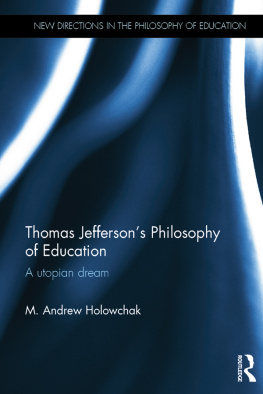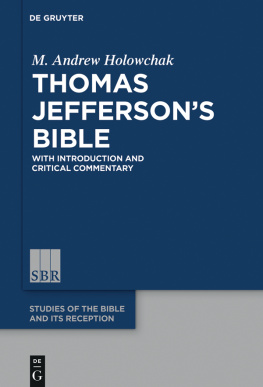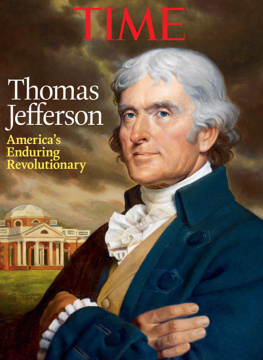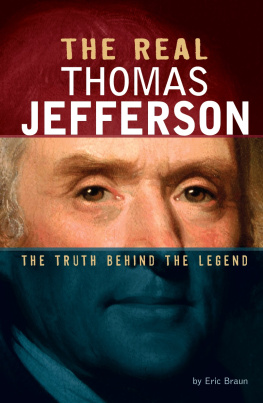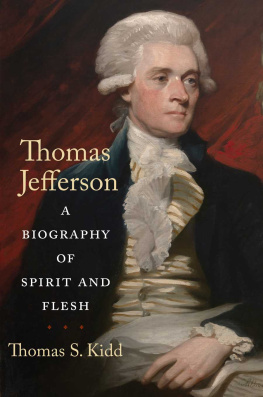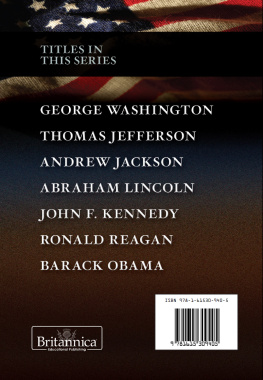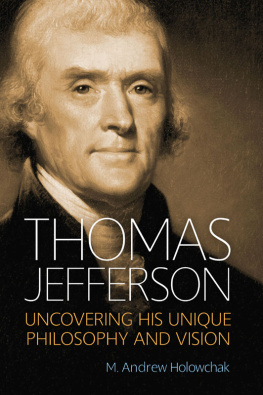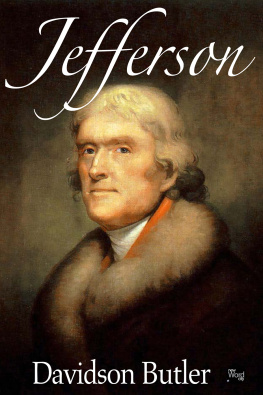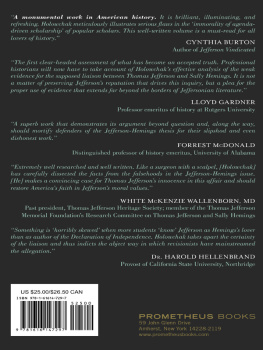A sage is never a private person.
Cicero, Tusculan Disputations
Jefferson, in a letter to J. Correa de Serra (25 November 1817), offers a prcis of his views on educational reform, drawn from his Bill for the More General Diffusion of Knowledge nearly some 40 years ago.
I have sketched and put into the hands of a member a bill, delineating a practicable plan, entirely within the means they [the Virginia Legislature] already have on hand, destined to this object. My bill proposes: 1. Elementary schools in every county, which shall place every householder within three miles of a school. 2. District colleges, which shall place every father within a days ride of a college where he may dispose of his son. 3. An university in a healthy and central situation.
He adds, The object [of elementary schools] is to bring into action that mass of talents which lies buried in poverty in every country, for want of the means of development, and thus give activity to a mass of mind, which, in proportion to our population, shall be the double or treble of what it is in most countries. The last sentence, parturient, reveals much of the rationale for his educational reforms. Other nations have a sharp delineation between its few wealthy and its numerous penurious. In France, for instance, every man must be either the hammer or the anvil and the great mass of the people [suffer] under physical and moral oppression. In the United States, Jefferson was hopeful that in time there would be no hammers to strike and no anvils to be struck.
Jeffersons rationale is economical, political, and philosophical. Economically, it is a matter of prodigious waste of resources. There is a mass of talents behind the mass of mind that lies buried in poverty. Politically, it is a matter of the demands of republican government. The mass of talents must be disinterred, if republicanism is to flourish, for republicanism demands that each citizen be active in political affairs to the fullest possible extent. Philosophically, it is a matter of the strictures of morality. No mass of mind can be left to burke in poverty, if all citizens are equal by the law of nature.
After expatiation of his educational reforms in the letter, Jefferson sums, Mine, after all, may be an Utopian dream, but being innocent, I have thought I might indulge in it till I go to the land of dreams, and sleep there with the dreamers of all past and future times.
Jefferson was, I believe, one of the greatest American dreamers. Yet his dreaming was not mere velleity. He was no stargazer, but foremost a practicalist, and, thus, he did not waste time on dreams that had little chance of coming to fruition.
Jeffersons greatest dream, without question, was instantiation of republican principles of government. For him, republicanism entailed a thriving citizenry each citizen equal under the laws and an alterable constitution to reflect the needs of a citizenry progressing over time in knowledge and virtue. That dream, he recognized early on in life, could not take root without across-the-board educational reform.
Equality of all citizens demanded that each citizen in the main be given the same resources to determine his own course in life viz., that all citizens start from square one, as it were. Such freedom of opportunity could only be safeguarded through readily accessible general education for all citizens.
Freedom of opportunity, of course, could not guarantee all would advance equally or that all would be happy. Differences of talent and intelligence would make equal advance impossible. Moreover, it was not the job of government to ensure each citizens happiness only to ensure each citizen an equal opportunity to be happy.
For a republic to thrive and Jefferson envisaged America as a republic so expansive that it would in time cover the continent of North America elected representatives would have to be of the most intelligence and virtuous. Moreover, science would have to prosper. Neither could happen, he knew, if there would not be in place an educational system that raked from the rubbish the most preeminent in genius and character for the most important stations in the republic.
In his own state of Virginia, there needed to be a university to accommodate the various needs of those preeminent to ready them for the various sorts of political involvement and scientific investigation. That university would need to be secular so the biases of religious education for example, indoctrination in Anglicanism would be incapable of contaminating political matters. That university would have to teach all the useful sciences in their most advanced forms so the scholars upon leaving the institution would be readied to govern and practice science in the most advanced manner. When that dream began to take the form of the University of Virginia, Jefferson wrote to Gen. Andrew Jackson (18 December 1823), If I live to see this I shall sing with cheerfulness the song of old Simeons nunc dimittis Domine a song signifying an accomplishment so great and gratifying that the time was right to die.
Between the bookends of the numerous elementary-education schools and the university, there would need to be in place a sufficient number of colleges or grammar schools to accommodate elementary-school scholars most promising in virtue and intelligence. At such colleges, scholars, too young for critical examination of issues, would focus on acquisition of languages, ancient and modern, and reinforce the principles of morality through exposure to history.
Jefferson avowed that his reforms must be taken in toto, for Jeffersonian republicanism bespoke a systemic approach of education, and there was no system in place in Jeffersons day. Republicanism, essentially a schema of governing with democratic and meritocratic components, demanded educational systematicity to preserve equality and freedom, to encourage maximal political participation at the bottom, and to reward intelligence and rectitude each quality in service of political stability and advance at the top.
Thomas Jeffersons Philosophy of Education: A utopian dream is an effort to offer a critical articulation of the philosophy behind Jeffersons thoughts on education education in partnership with the principles of republican governing and in the service of virtuous living and human happiness. To that end, Jeffersons educational philosophy and political philosophy are grounded normatively on a robust view of human thriving that requires both enlightened and virtuous governors and access by all citizens to some degree of learning. That vision develops over time as his thoughts on republican governing mature. This book is an attempt to bring to light that vision, essentially philosophical, chiefly through critical examination of and expatiation on Jeffersons own writings.
, education in the service of lifelong needs. In all, I argue that Jeffersons systemic, economical approach to education bespeaks a systemic, economical approach to living, with strong affinities to Stoicism.
I have two caveats: one procedural, one methodological.
First, there is a pronounced tendency in the secondary literature today to assess critically Jeffersons thoughts and actions from the perch of modern moral mores what I call elsewhere the fallacy of historical anachronism. It is sufficient to state that he speedily would have changed his mind apropos of the capabilities of women and blacks were he alive in our time.
Second, there are several major compilations of Jeffersons writings, several of which I list in the following.
- The Writings of Thomas Jefferson: Being His Autobiography, Correspondence, Reports, Messages, Addresses, and Other Writings, Official and Private: Published by the Order of the Joint Committee of Congress on the Library, from the Original Manuscripts, Deposited in the Department of State , 9 vols., ed. Henry Augustine Washington (Washington: Taylor & Maury, 18534),

